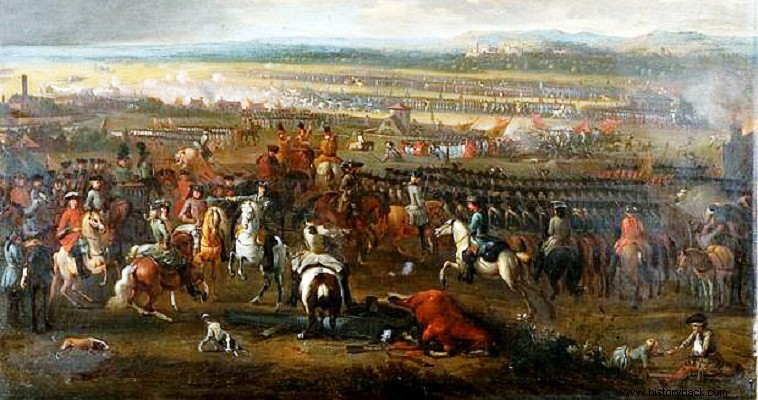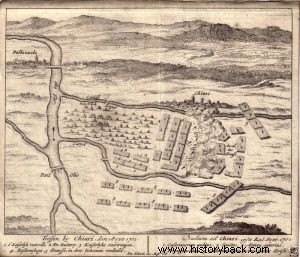
The War of the Spanish Succession, the first truly world war in history, was already underway in 1701. On the northern Italian front the best general of the Habsburgs, Prince Eugene of Savoy, had already defeated the French in the first engagements.
In response, the French king Louis XIV sent the experienced field marshal Vigerois to northern Italy with orders to destroy Eugene's imperial army. “I can't tell you how pleased I am to have you as my commander… I have reason to believe that you will finish the campaign gloriously", Louis wrote to his marshal.
Eugene, for his part, was not one of the generals who avoided battles. However in this case he should not feel too optimistic as the French marshal enjoyed absolute numerical superiority of almost 2:1, with 38,000 men (French and Spanish), compared to 22,000 which, at best, Eugene could muster.
The latter, however, having been informed by his indefatigable light cavalry (hussars), but also by spies, of the numerical strength of the enemies decided to occupy a naturally fortified location on the eastern bank of the Olio river. The "Austrian" general with French and Italian roots, ordered the construction of fortifications further strengthening the site and then waited for the enemy.
As the imperial defensive position was covered on the right flank by streams and small rivers and on the left by the fortress of Chiari, Eugene knew that only in front could the French attack him mainly with their infantry, as cavalry could hardly do anything on the said battlefield.
Selfishness and deception
The French army approached the area. In vain the previous French commander Catinas tried to convince Vigerois. "Sir, the king did not send so many brave men here just to look at the enemy" , he replied to his potential competitor.
So on September 1, 1701 the Franco-Spanish army moved towards the enemy. After all, Eugene had provoked the enemy to attack him through "spies" he sent to the enemy camp and who "informed" Vigerois that he intended to retreat. Believing Eugene's men and having confidence in himself and his forces, the French marshal advanced.
His army crossed the river Olio and moved towards Chiari believing that it would only have the rear guard of the retreating Eugene in front of it. Instead, however, the French and Spanish found themselves facing the entire army of Eugene, fully prepared and determined not to surrender even an iota of ground! The Imperials let their opponents get within 50m before unleashing hell on them.
In vain the officers valiantly tried to persuade their men to come forward. Within a few minutes over 250 French and Spanish officers lay on the ground wounded or lay still, dead. About 3,000 soldiers had also fallen next to them, without any practical effect. Eugene's army had about 200 dead and wounded.
The hyperbole Villeroy soon lost all control of his army and it was only thanks to the wounded Catinas that the Franco-Spanish army managed to retreat and escape the trap without being disbanded. Vigerois's army, morally and practically wounded, withdrew out of range of the enemy's guns and encamped opposite the enemy so as not to leave the field and be considered defeated!
It was another foolish ploy to avoid the wrath of King Louis. The French and Spanish camped in a marshy area and remained there for two months and were decimated by disease in that unsanitary place. So in mid-November, Vigueiro finally withdrew the army, admitting defeat and retreating to Milan.
There the French and their allies managed to become highly unpopular by grabbing everything from the inhabitants. Soon their army began to dissolve itself due to desertions. Eugene at the same time occupied additional territory in the area, making sure to observe the discipline of the army. In one case he did not hesitate to execute 48 men who had looted civilian property.
The battle at Chiari had, beyond the tactical, a strategic result. Britain and the Netherlands signed a treaty of alliance with the Austrian emperor entering the war against France.


